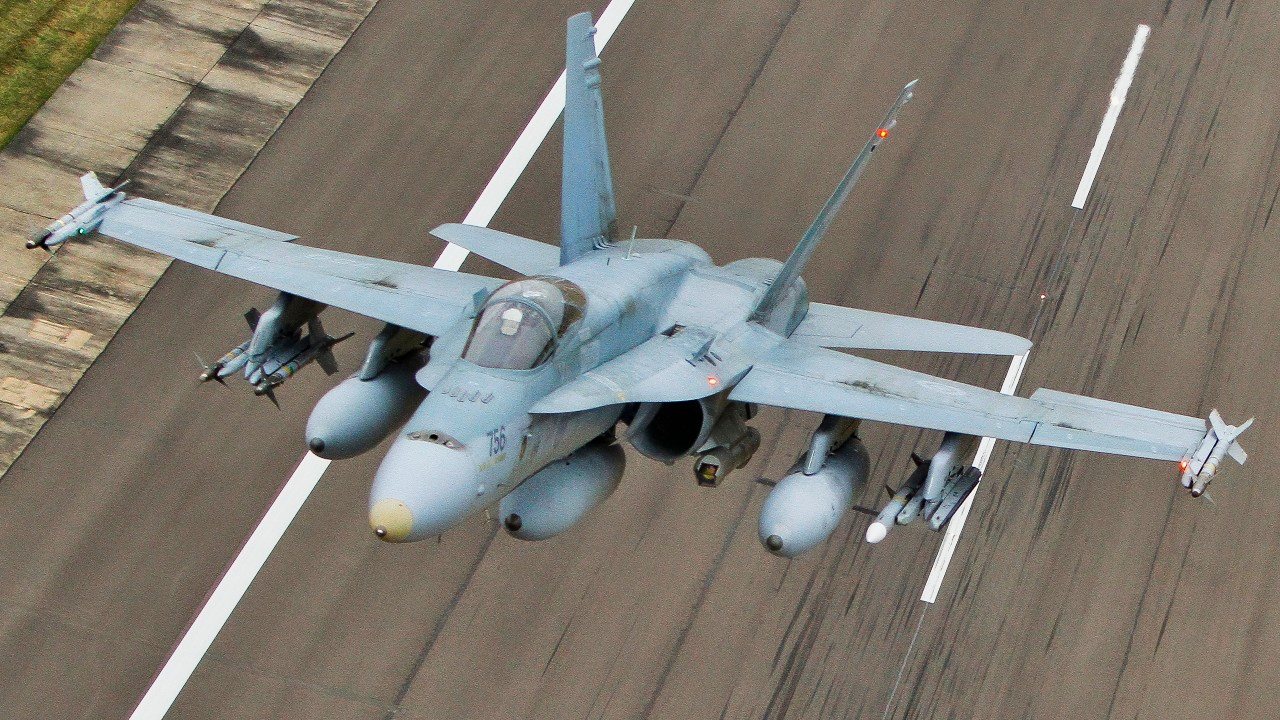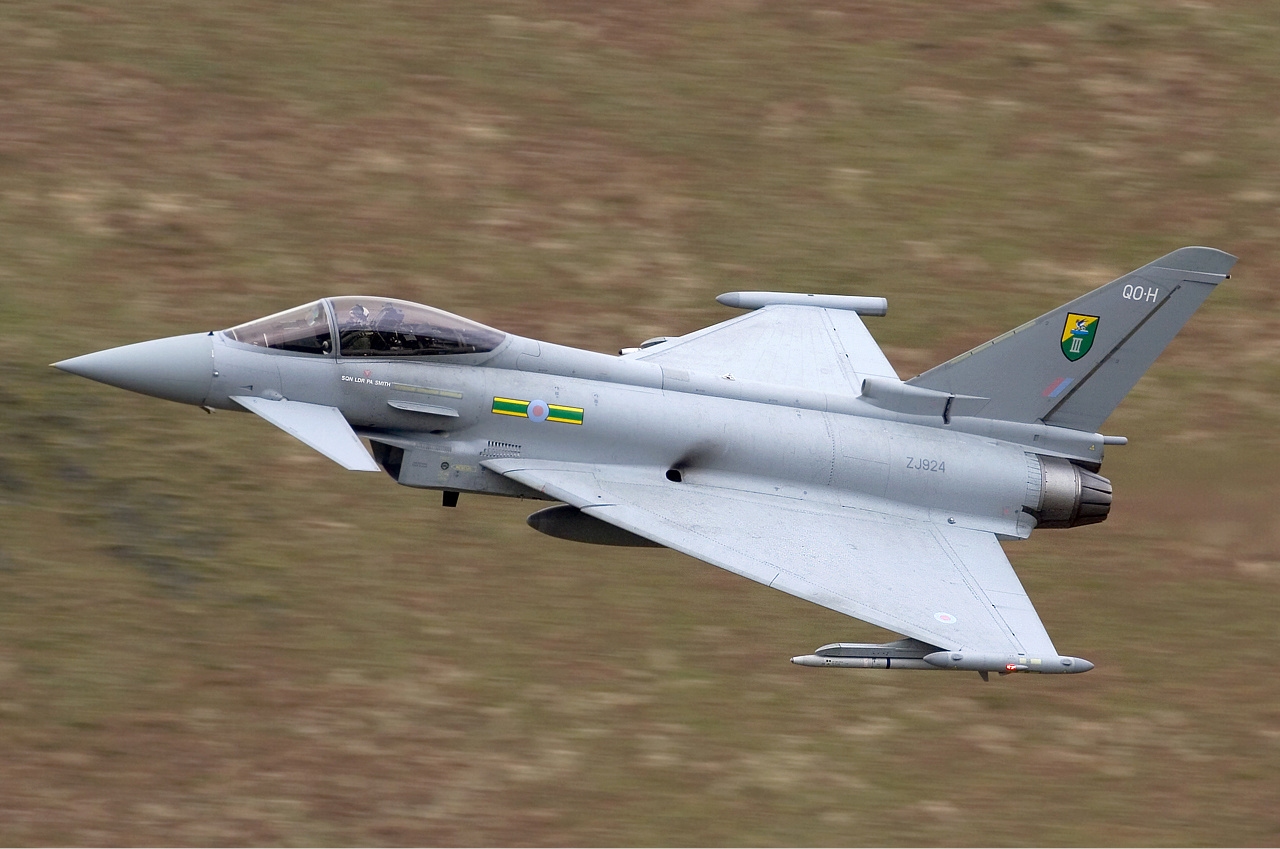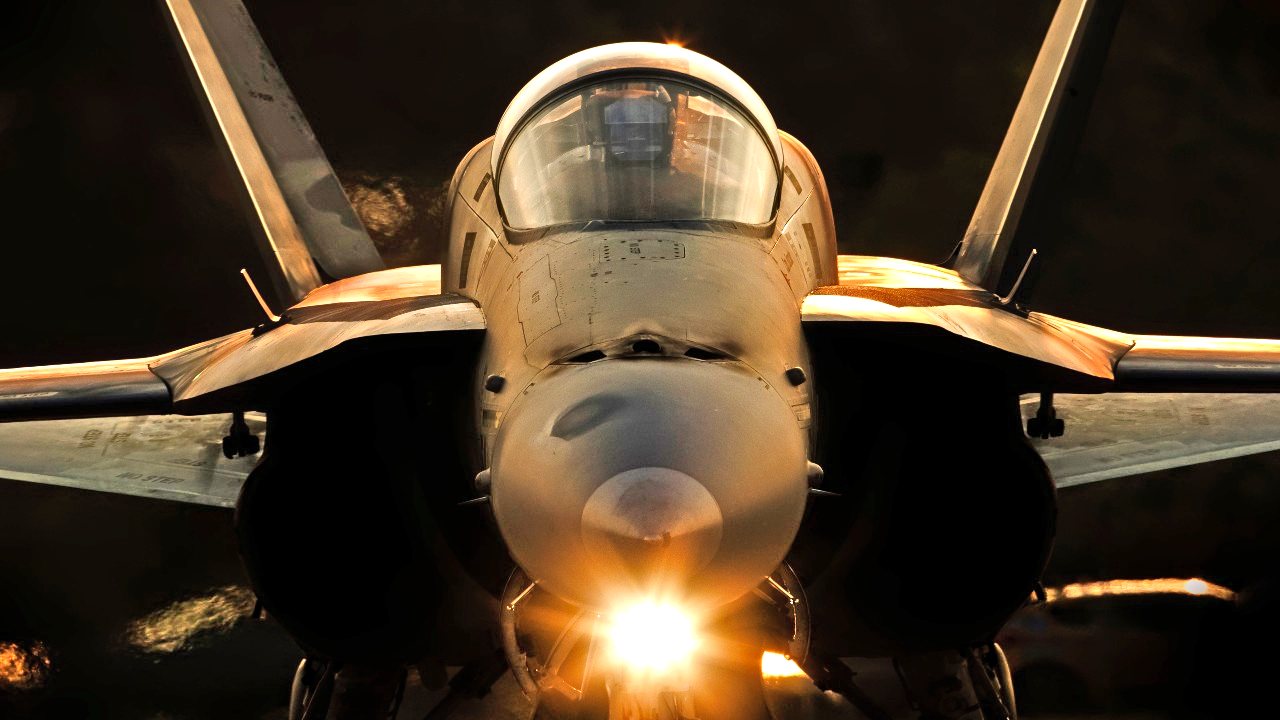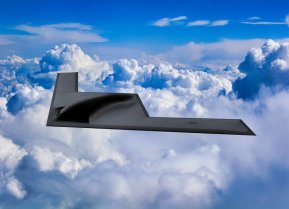F/A-18 Super Hornets and Eurofighter Typhoons Just Attacked the Houthis
A Western coalition comprised of the United States, United Kingdom, Canada, Australia, Bahrain, and the Netherlands conducted a series of strikes against Houthi insurgents in Yemen.
Overnight, a Western coalition comprised of the United States, United Kingdom, Canada, Australia, Bahrain, and the Netherlands conducted a series of strikes against Houthi insurgents in Yemen.
The air and missile attacks came after weeks of drone and missile attacks by the Iran-backed Houthis against targets across the Middle East.
Air and Missile Strikes on Houthi Targets
In terms of warships and aircraft involved, the U.S. aircraft carrier USS Dwight D. Eisenhower launched over 15 F/A-18 Super Hornet fighter jets, and four Royal Air Force Eurofighter Typhoons took off from Cyprus; submarines and other warships also supported the operation.

The air and missile strikes focused on Houthi infrastructure and weapon systems. Houthi ballistic and cruise missiles, unmanned aerial vehicles, munition depots, command and control nodes, production facilities, coastal radars, and air surveillance capabilities were high on the U.S.-led coalition’s target deck. Overall, the Western aircraft and warships used over 100 precision-guided munitions to strike more than 60 sites at 16 locations.
“In light of the illegal, dangerous, and destabilizing Iranian-backed Houthi attacks against U.S. and international vessels and commercial vessels from many countries lawfully transiting the Red Sea, today the militaries of the United States and the United Kingdom, with support from Australia, Bahrain, Canada, and the Netherlands, conducted strikes against military targets in Houthi-controlled areas of Yemen,” Austin said in a press statement.
As the Pentagon made clear, the U.S. military maintains the rights to conduct follow-on air strikes, missile strikes, and other operations to ensure that the threat posed by the Houthis against maritime trade and shipping in the area stops.
“This action is intended to disrupt and degrade the Houthis' capabilities to endanger mariners and threaten global trade in one of the world's most critical waterways. Today's coalition action sends a clear message to the Houthis that they will bear further costs if they do not end their illegal attacks,” the U.S. Secretary of Defense added.
Starting in late November, the Houthis have launched close to 30 attacks against Western warships and commercial shipping in the Red Sea and Arabian Gulf. Although the attacks have been intercepted by warships patrolling the area, the constant threat encouraged instability in the area. This is a vital piece of maritime real estate as about 15 percent of the world’s shipping passes from the area.

“The U.S. is] committed to upholding the rules-based international order demonstrated our shared commitment to defending U.S. and international vessels and commercial vessels exercising navigational rights and freedoms from illegal and unjustifiable attacks,” Austin concluded.
The U.S. Central Command (CENTCOM) has placed air defense systems across the area of operations on high alert in anticipation of Houthi or Iranian retaliation. There are several U.S. and allied MIM-104 Patriot air defense systems in the area, especially in Saudi Arabia.

“In planning the strikes, particular care was taken to minimise any risks to civilians, and any such risks were mitigated further by the decision to conduct the strikes during the night. The detailed results of the strikes are being assessed, but early indications are that the Houthis’ ability to threaten merchant shipping has taken a blow,” the British Ministry of Defense stated.
About the Author
Stavros Atlamazoglou is a seasoned defense journalist specializing in special operations and a Hellenic Army veteran (national service with the 575th Marine Battalion and Army HQ). He holds a BA from Johns Hopkins University and an MA from the Johns Hopkins School of Advanced International Studies (SAIS). His work has been featured in Business Insider, Sandboxx, and SOFREP. Email the author: [email protected].
All images are from Shutterstock/Creative Commons.


